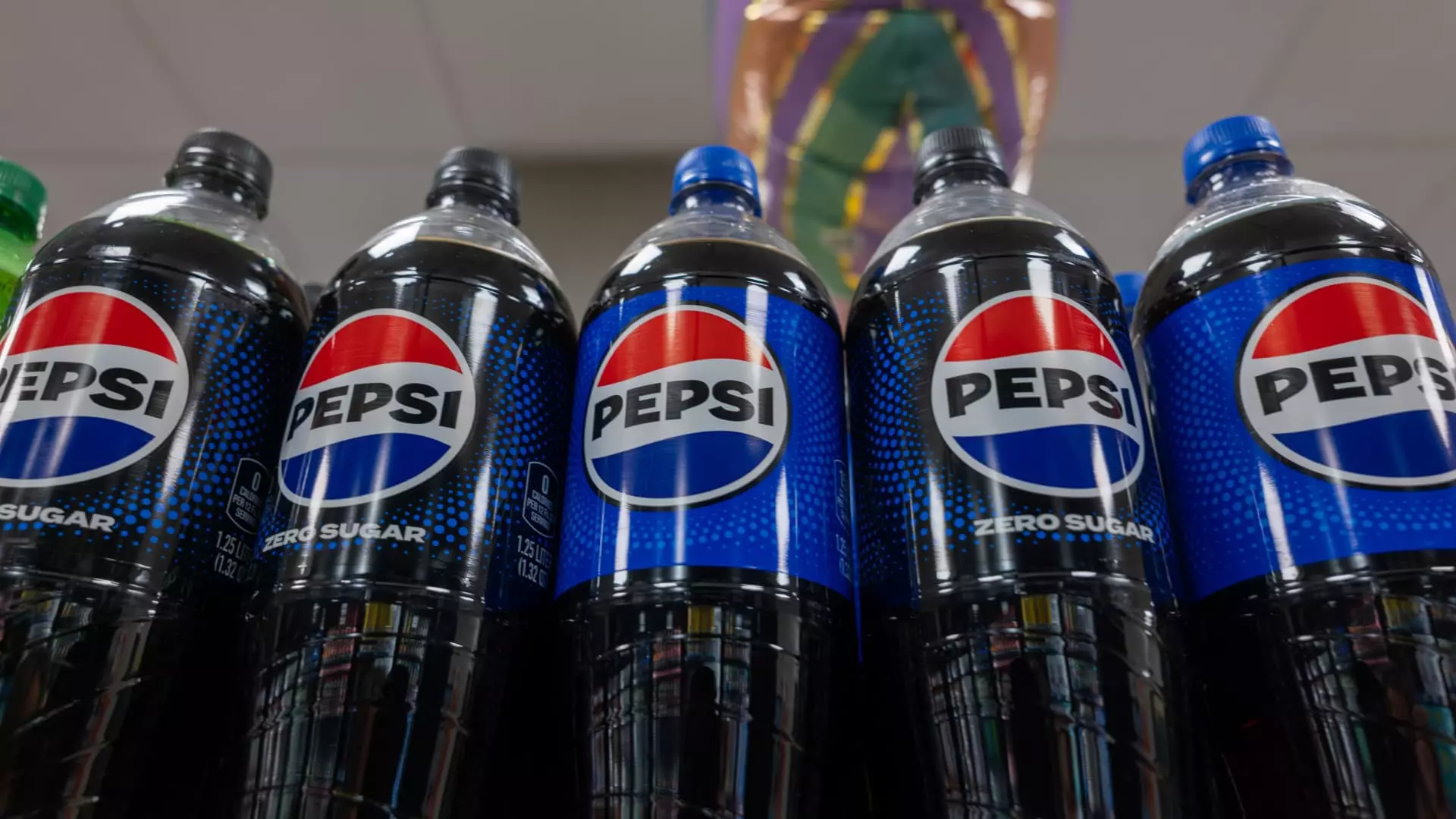In a climate riddled with economic uncertainties, PepsiCo has revealed a rather disconcerting quarterly report that raises questions about the brand’s stability in increasingly volatile markets. The food and beverage titan has experienced a notable downturn in its North American sales, which echoes a broader trend of consumers tightening their budgets amid rising inflation. While its international sales acted as a temporary buffer, the overall impression is one of fragility rather than strength. The sharp decline in net income—down from $2.04 billion to $1.83 billion—signals an urgent need for strategic reevaluation.
CEO Ramon Laguarta’s statement about anticipated volatility in global trade only adds to the ominous forecast. If PepsiCo can’t navigate these treacherous waters, its once-vibrant brand could gradually wither, losing touch with the very consumers who once propelled it to the top.
Analysts Left Disappointed
Despite a slight outperformance in revenue which reached $17.92 billion against expectations of $17.77 billion, the critical metric of earnings per share fell short of predictions, coming in at $1.48 rather than the expected $1.49. Such discrepancies can be alarming for investors, suggesting that while revenue may have improved marginally, core profitability reflects a more pessimistic picture. It’s reminiscent of the age-old warning: revenue growth without profit growth is a hollow victory, often leading down a slippery slope of higher scrutiny and diminished consumer trust.
With shares falling 2% in premarket trading, every investor’s skepticism is palpable. When a stalwart of the industry like PepsiCo stumbles, the ripples of concern extend throughout the broader market, affecting perceptions of industry stability.
Navigating an Uncertain Consumer Landscape
Laguarta’s candid acknowledgment of consumer hesitancy highlights an uncomfortable truth: inflation is not merely a backdrop; it’s shaping the landscape of consumer behavior. People are opting for value over brand loyalty, making decisions based on immediate economic pressures rather than emotional attachments to companies.
The report also notes an increase in value-conscious shopping behaviors, particularly among those who have traditionally opted for premium products. This shift may prove challenging for a corporation like PepsiCo that has historically relied on strong brand identities and premium pricing strategies. The company must adapt to this new reality or risk alienating itself from an increasingly budget-conscious consumer base.
Strategic Shifts Amid Challenges
PepsiCo’s plans to revitalize their North American business, including expanding into multicultural and functional foods, indicate a recognition of their shifting market landscape. Innovations can be a lifeline; however, there’s a fine line between an authentic response to consumer needs and an overzealous pivot that risks alienating long-time loyalists. Their recent acquisition of Poppi—a prebiotic soda brand—shows an attempt to align more closely with health-conscious trends; however, questions remain about whether this alone is enough to offset declining sales in core products.
It’s equally worth noting that while some segments, like Pepsi Zero Sugar, saw increased market share, the company has not yet successfully translated this growth into broader revenue increases. Such contradictions can fuel investor uncertainty and weaken brand equity over time.
The Road Ahead: Uncertain but Necessary Actions
It is imperative for PepsiCo to seize the moment and engage dynamically with their consumers, enhancing store visibility while also innovatively capturing emerging trends. Nonetheless, transformation doesn’t happen overnight. Continuous revenue growth amidst broader market indifference necessitates a transparent and valid critique of operations.
If PepsiCo is to thrive, it must leverage its storied history while embracing the modern landscape of consumer demands and economic realities. A proactive yet cautious approach may provide the stability this stalwart brand needs, but the real question remains: will they have the foresight to navigate these turbulent waters effectively? Only time will tell.

